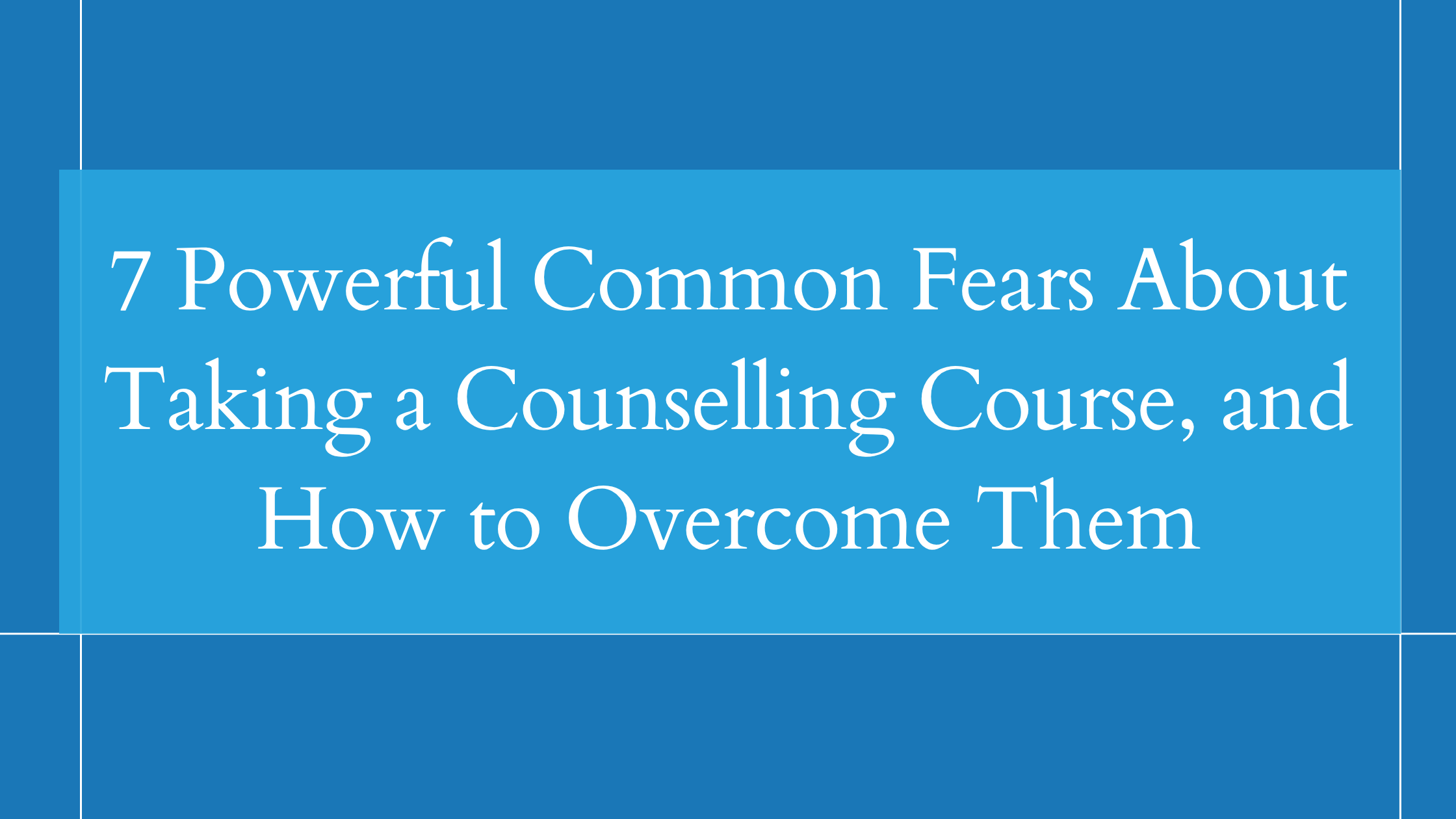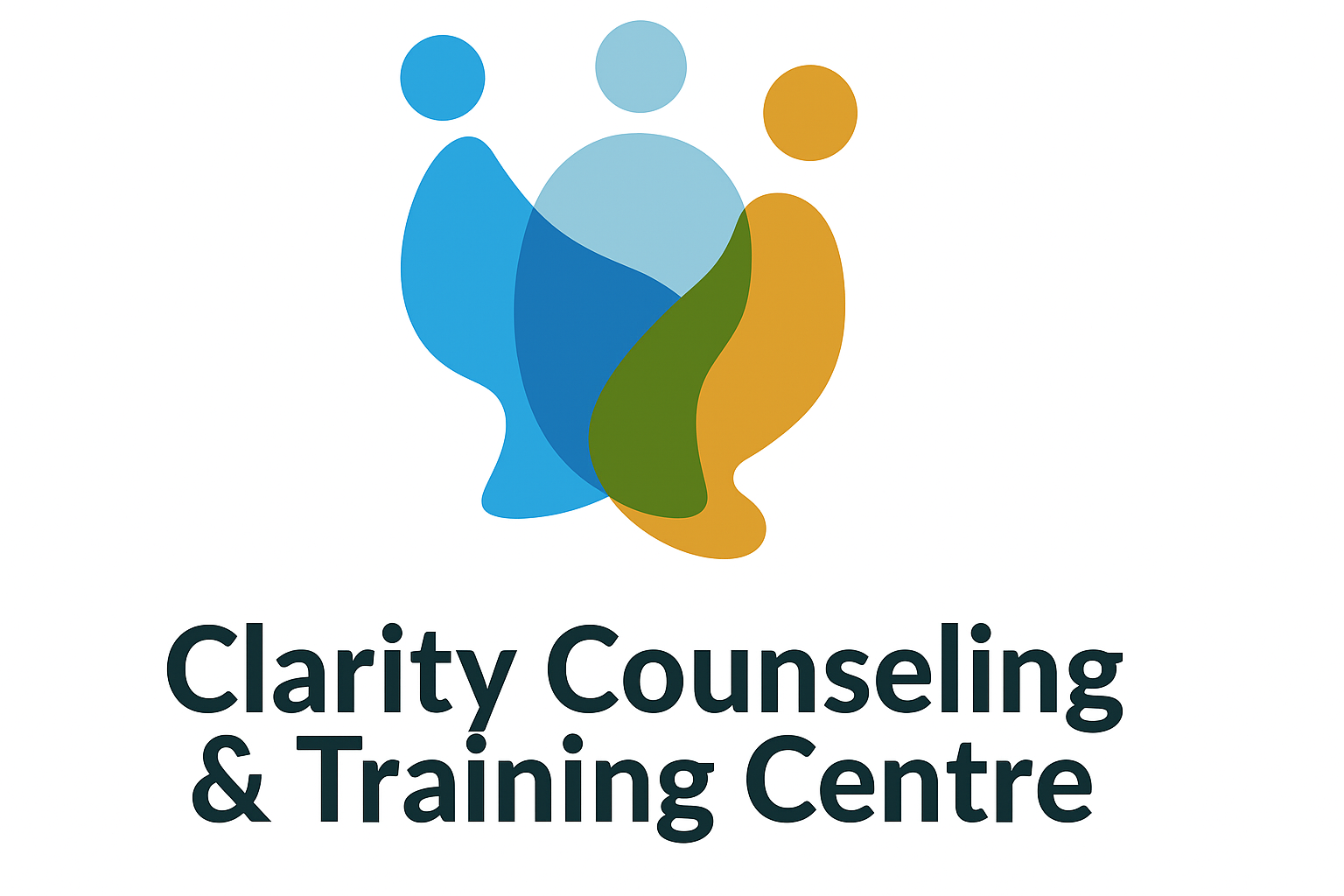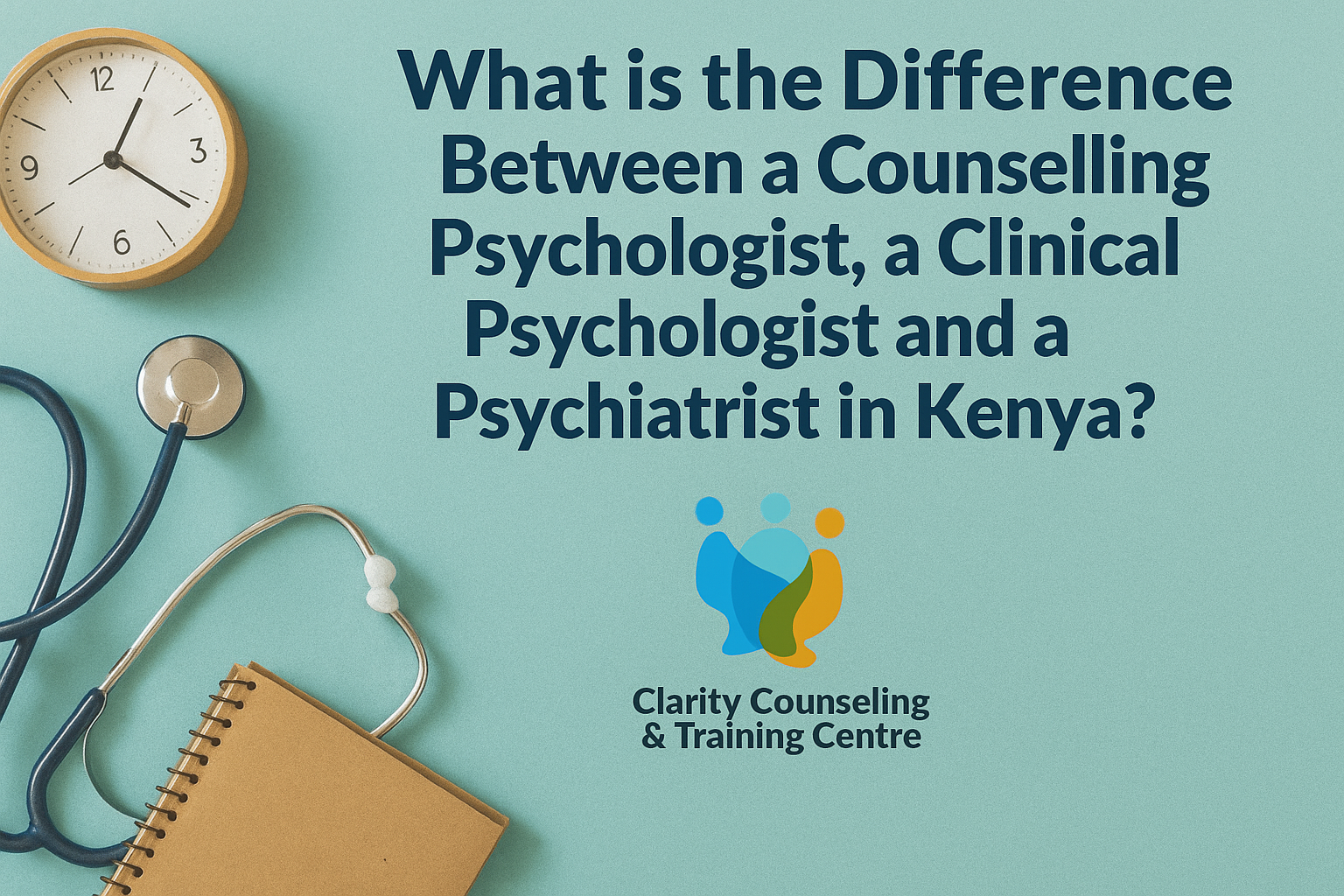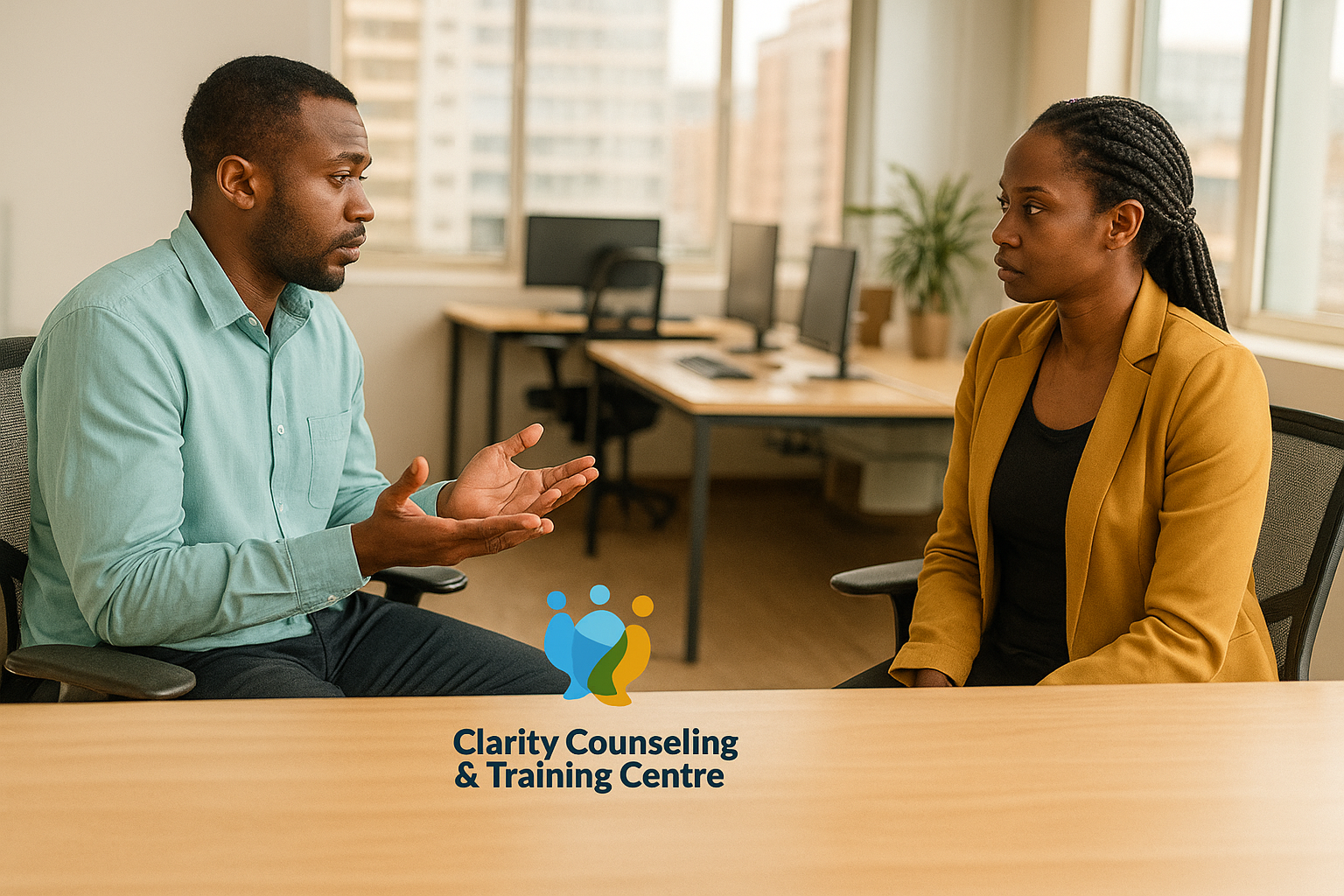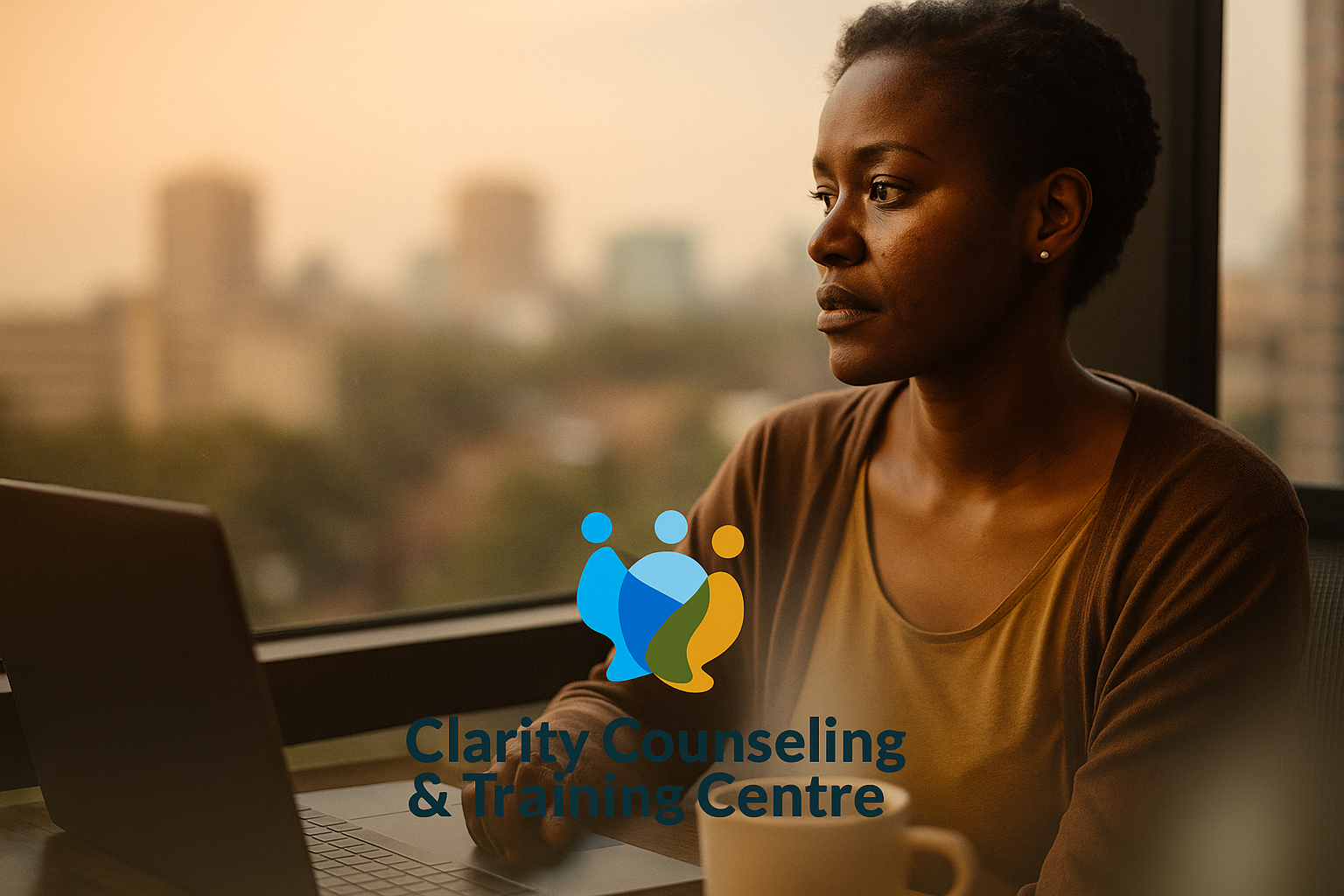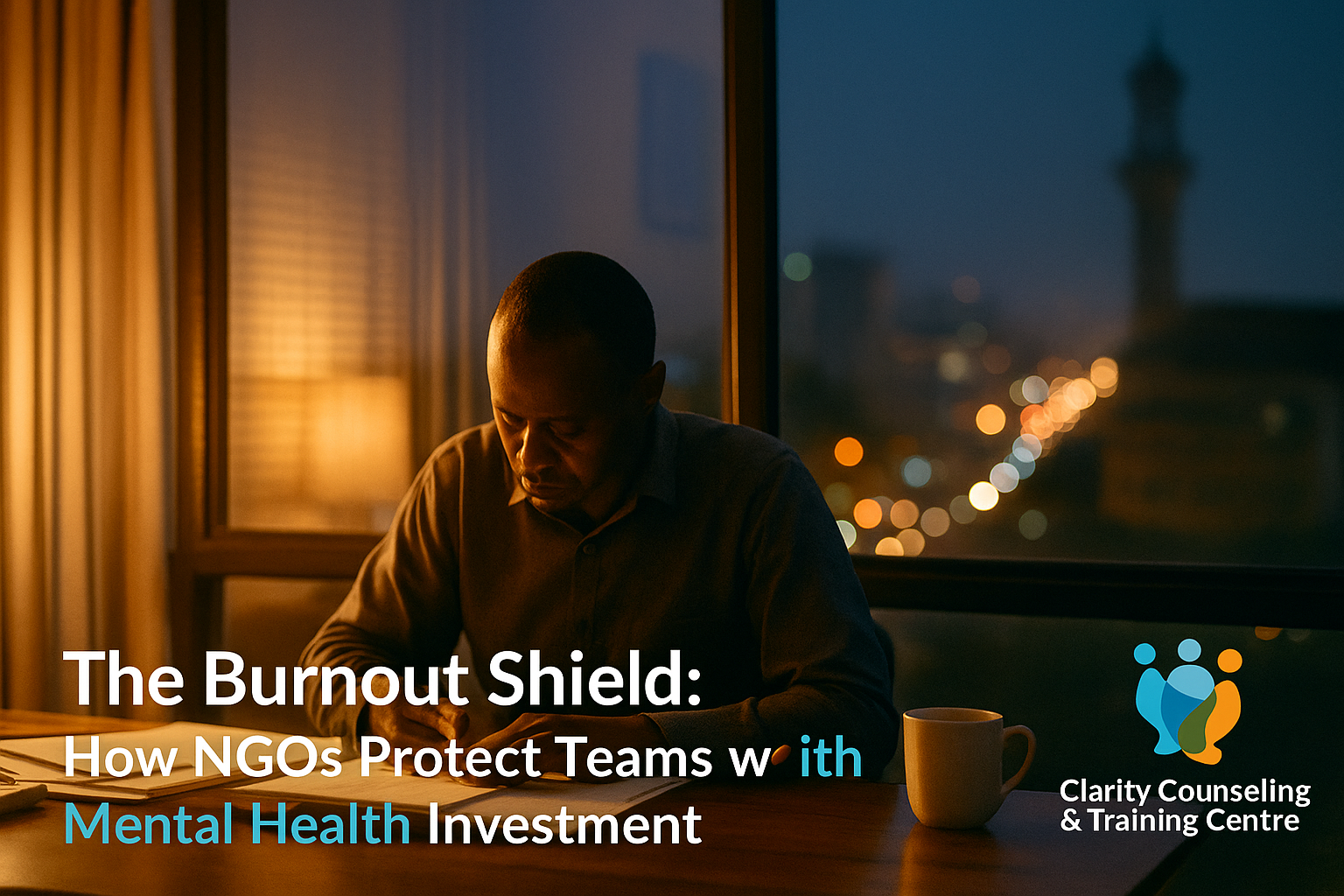Your First Therapy Session in Nairobi: A Guide for First-Timers
It’s a hectic afternoon in Nairobi, and you’re at your desk, heart thumping like a racing engine early in the morning. Deadlines loom, your inbox is in chaos, and a heavy feeling weighs on your chest.
Maybe you’re a Kenyan professional in the UAE, feeling isolated while carrying family expectations, and burdened with the demands of a new culture. You’re wondering how to cope with the stress and loneliness. You have heard of therapy, but the thought turns your stomach.
What happens?
Will you be judged?
Will you be admitting defeat?
You’re not alone, and many others wonder this, too.
I am here to tell you that therapy is a quiet, welcoming room where you can finally breathe. It’s a brave step toward healing. Below, we’ll explore why you’re nervous, what to expect in your first therapy session in Nairobi, how to prepare for therapy, and why Clarity Counselling & Training Centre is the right choice for you.
Quick Look at What to Expect on Your First Therapy Session in Nairobi
- Your first session starts with a warm welcome and light chat.
- Your therapist will take you through what to expect from the process of therapy.
- Clarity will be provided on your role as a client and your therapist’s role.
- You’ll share your struggles, set goals, and learn what’s next.
- Prep by reflecting on goals and writing down concerns.
- Clarity Counselling offers affordable sessions (KSh 3,000) in Nairobi.
Why Does Therapy Feel So Scary for First-Timers in Kenya?
Starting therapy feels like stepping into the unknown, like walking into a new job interview blindfolded.
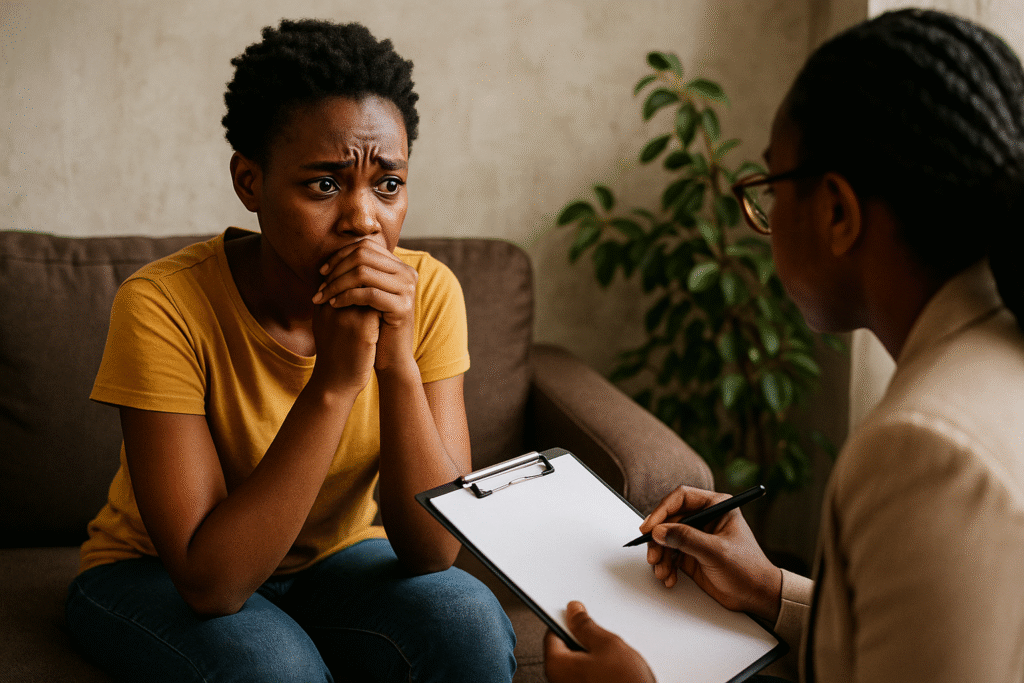
- Will the therapist judge you?
- What if you don’t know what to say?
- Does going for therapy mean that you’re weak?
- Will talking to a stranger help?
All these are questions that are probably running through your mind.
For Kenyan professionals, those fears hit hard. In Nairobi, mental health talk often comes with stigma. “Therapy is for the weak,” some whisper. “Just pray about it.” We’re taught to keep struggles private, but therapy flips that script.
Ever felt like you’re supposed to be the strong one, the one who never cracks? That weight is heavy, but those fears are normal. Therapy is not about judgment and giving you labels. It’s the road map to unravelling and joining the dots of what you are feeling, experiencing and supporting you to finally breathe freely.
Let’s take away the mystery and show you what’s coming.
What to Expect in Your First Therapy Session in Nairobi
Your first session is a conversation. Picture walking into Clarity Counselling’s office on Utalii Street in Nairobi. The therapist greets you with a warm smile, asking, “How was your day?” It’s a light chat to calm those jitters, like catching up over chai.
They might say, “I know starting therapy can feel scary, you’re brave for being here.” That makes the room feel safe, like a cozy corner to let your guard down.
The Basics: What You Need to Know
We’ll explain the setup:
- Sessions are 60 minutes.
- Fees are KSh 3,000, often covered by insurers like KCB or M-Tiba.
- Confidentiality is assured.
- Your role (attending sessions consistently, being honest, taking action on insights gained and completing your assignments in between sessions)
- Your therapist’s role (to help you understand yourself, to listen without judging, to empower you with relevant tools to deal with the issues at hand), all this without judging or giving advice.
- Frequency of sessions.
Everything stays confidential. You get a “map” before a journey, you’ll know where you’re headed and feel grounded.
Sharing Your Story
Our therapist might ask, “What brought you here?” Maybe you’re a Nairobi accountant drowning in deadlines, feeling the pressure of the city’s hustle. They’ll listen as you talk about sleepless nights or snapping at your kids. We are not about fixing everything, but trying to understand you. Think of it like unpacking a heavy bag, one piece at a time.
A Quick Check-In to Tailor Support
They’ll ask about your background, work, family, and past struggles. If you mention anxiety from work stress, they might ask, “How long has this been going on?” It’s like a doctor checking symptoms to create a plan that fits you.
Setting Goals Together
We’ll set goals together. Want to feel less anxious at work? Communicate better with your spouse? Together we jot that down, ensuring we’re on the same page. It’s like plotting a route, you’re not there yet, but you know where you’re going.
What If I Don’t Know What to Say?
Silence is okay. “I don’t know what to say?” That’s normal and a good place to start. Our Nairobi therapists guide you with questions like, “What’s been on your mind?” or sit quietly, giving you space.
It’s not awkward for them, but part of the process. You don’t need all the answers.
How to Know If Your Therapist Is the Right Fit
A good fit matters. Do they understand your pressures, like Nairobi’s hustle or diaspora expectations? Are they warm and easy to talk to? Do you feel understood? Do their qualifications fit your needs? If something feels off, ask, “How do you approach work stress?” It’s okay to try someone else. This is your journey, make sure it feels right.
How Long Does It Take to See Results from Therapy?
Change takes time. Most people see shifts after 3-5 sessions, but it varies. Therapy isn’t a quick fix, it’s a steady climb. You’ll leave with small steps, like noticing stress triggers, to work on next. It’s like planting a seed; growth happens with care.
How to Prepare for Your First Therapy Session in Nairobi: 3 Easy Steps
Feeling ready can turn butterflies into excitement.
- First, think about what you want from your first therapy experience in Kenya. Maybe you want to manage work stress in Nairobi. Jot down your goal: “I want to stop feeling overwhelmed.” It’s like setting a destination, it keeps you focused.
- Second, write down points to share. Struggling with sleepless nights? Feeling distant from your spouse? Note it so you don’t forget. It’s like packing a bag—you’ll feel in control.
- Finally, be ready to be honest, even if it’s hard. Therapists aren’t there to judge but to help.
Got questions? Ask them. “What’s your experience with work stress?” or “How do you keep things private?” These make you feel at ease, like knowing the rules of a new game.
Quick Prep Checklist:
- Think about your goals—less stress, better relationships.
- Write down worries or questions to share.
- Be ready to open up—honesty helps.
Why Choose Clarity Counselling & Training Centre for Your First Therapy in Kenya?
Clarity Counselling & Training Centre understands how starting therapy in Kenya can feel daunting. We offer individual therapy for personal struggles, couples therapy to mend relationships, and child therapy to support your family.
With over 1,200 sessions under our belt, we’ve helped countless Kenyan professionals. At KSh 3,000 a session, and partnerships with insurers like KCB, m-tiba, and Fidelity, it’s within reach. Our offices on Utalii Street in Nairobi are a welcoming space, or we can connect online if you’re in the diaspora.
Take the First Step with Confidence
Your first therapy session isn’t a mystery. It’s a warm welcome, a chance to share, a moment to set goals. You’ll unpack struggles, build trust, and leave with a plan —small steps to big change. Preparing is simple: reflect, write, be honest.
Clarity Counselling & Training Centre is ready to support you, in Nairobi or the diaspora. Attending therapy isn’t a sign of weakness, but a sign of strength. Don’t wait another day.
FAQ: Common Questions for First-Timers
What if I don’t know what to say?
That’s okay. Therapists guide you with gentle questions. Silence is normal.
How do I pick the right therapist?
Look for someone experienced with your concerns, like work stress. Ask questions to feel the fit.
What do I bring?
Just yourself—maybe a notebook if you like to write or journal your thoughts.

